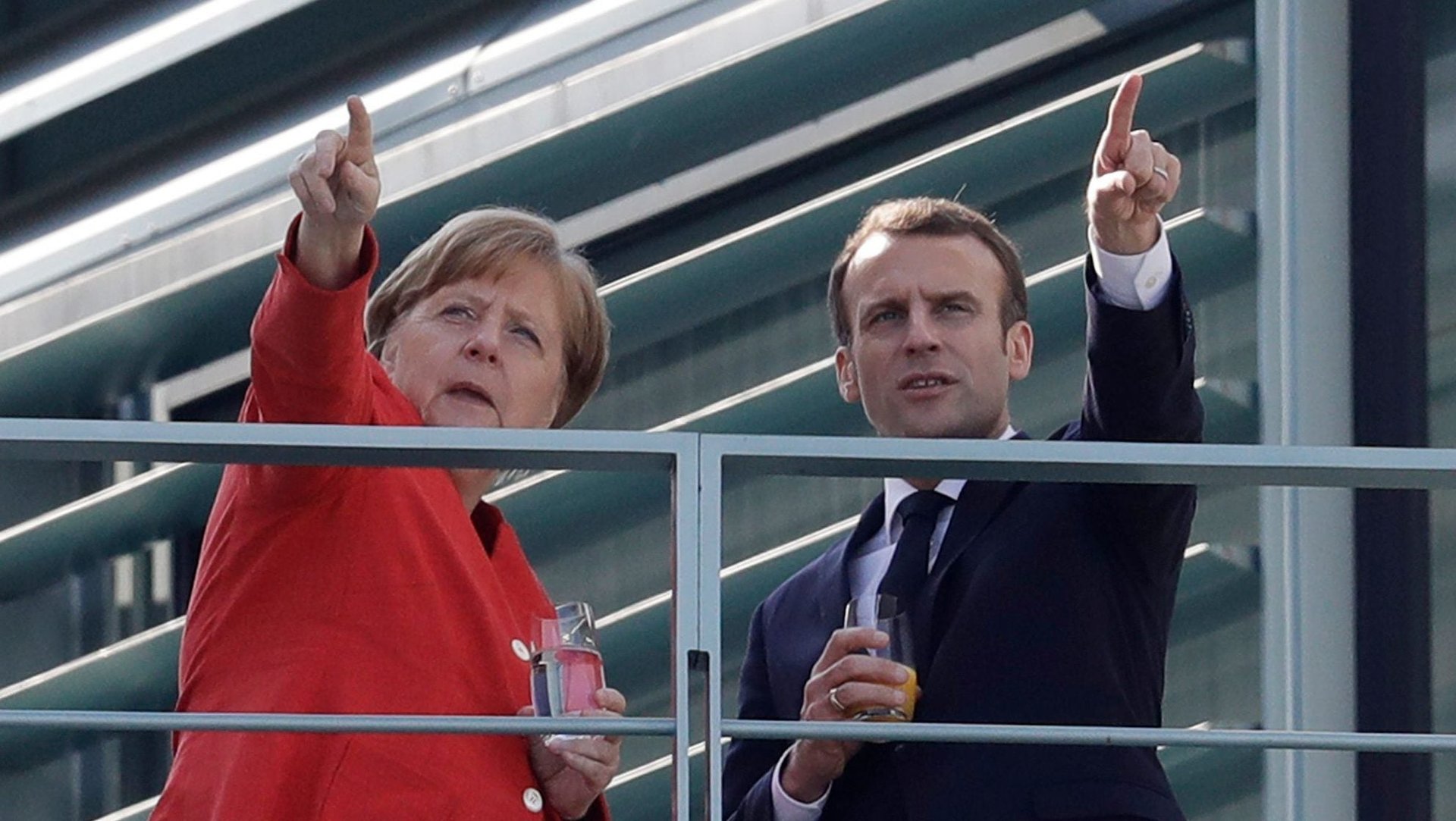Angela Merkel’s departure is a hit for Macron
Angela Merkel’s announcement this week of her planned exit from German politics is a loss for the European Union, a constantly-evolving project that she has protected and safeguarded since she took office, even at times when it seemed no other world leaders cared. But it is even more of a loss for French president Emmanuel Macron, the person who will now have to take up the mantle of protector of progressive Western values.


Angela Merkel’s announcement this week of her planned exit from German politics is a loss for the European Union, a constantly-evolving project that she has protected and safeguarded since she took office, even at times when it seemed no other world leaders cared. But it is even more of a loss for French president Emmanuel Macron, the person who will now have to take up the mantle of protector of progressive Western values.
While Macron has been handed this title in the wake of Merkel’s exit, it is unclear whether he is up to the task. A string of political scandals and an economic slowdown have left him with historically weak domestic popularity ratings (link in French). His party, La République en Marche, has virtually no representatives in the European Parliament, at least until the upcoming European elections in May 2019. And his ideas for reform of the EU and the eurozone, have not progressed past rhetoric.
But throughout it all, Macron always had Mutti (as Merkel is affectionately known in Germany).
Angela Merkel: Europe’s champion
With her steady leadership, Merkel saw both Germany and the EU through tough times, including the reverberations of the 2008 financial crash, the Eurozone economic crisis, the European refugee crisis, and Britain’s referendum to leave the EU. Germany was able to maintain economic and political stability, even after Merkel took the unprecedented step of allowing large numbers of refugees from war-torn Syria into the country in 2015.
She has had precious few allies in this quest, as an increasing number of European nations turned to the far-right and elected illiberal rulers with anti-immigration and anti-EU policies, including Hungary’s Viktor Orban and Austria’s Freedom Party. The far-right Alternative for Germany (AfD) party is now present in all 16 German state parliaments as a result of Merkel’s liberal immigration policies. European Union member states are coalescing, not along traditional left-right divides, but rather around who is for and against the union’s very existence. And British people made their choice in 2016, when they voted to leave the EU.
“Merkron”: A shared Franco-German vision of Europe
From the start of his mandate as French president in May 2017, Macron has relied on Merkel to advance a shared vision for a cosmopolitan Europe. But even the Franco-German power couple did not agree on the best way to get there. While Merkel publicly backed Macron’s domestic reforms and dynamic support for Europe, she never indicated any willingness to back his most audacious ideas for EU reform—particularly his proposals to create a fund to bail out Eurozone countries, or to create a European finance minister. But Merkel did at least provide a like-minded partner for Macron’s bold ideas, one with the political clout to help him face down the increasingly aggressive, anti-EU machinations of Russia’s Vladimir Putin.
Now, Macron has lost his biggest ally. And his opponents, like Marine Le Pen, the leader of the far-right National Front party, are cheering Merkel’s exit, because they know it further weakens his position domestically and abroad:
Perhaps more worrying for Macron is that any Merkel successor may not be as supportive of his ideas. They will have first have to deal with the political and economic problems currently affecting Germany.
Macron is not the only progressive, democratic leader in Europe. But he is fundamentally alone in defending the sanctity of the European project. No other leader is willing to be the public face of the European vision, and to carry that vision forward, while battling a lack of US leadership on global issues, the rise of Russia, an economic slowdown, and the ascent of the far-right. As Jan Techau, the Berlin-based director of the Europe program for the German Marshall Fund, told The New York Times, Macron is “now the default leader of Europe, the big hope.” Time will tell whether he’s up for the task.